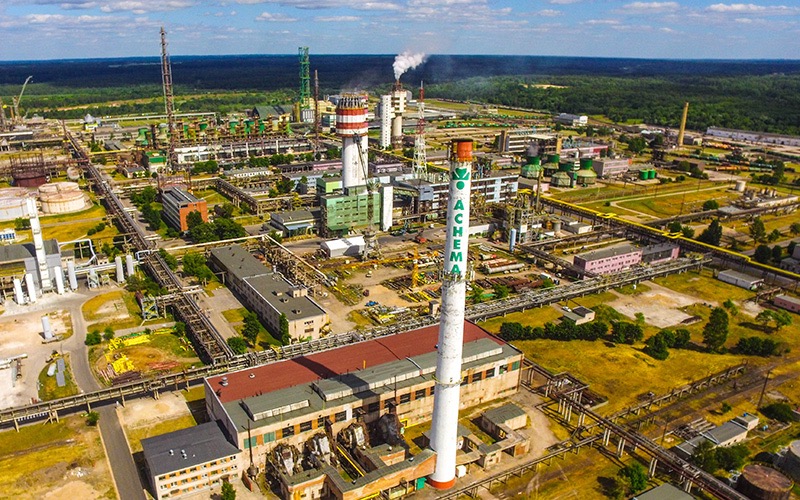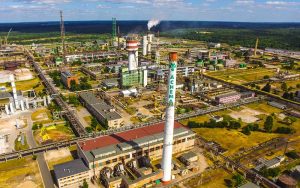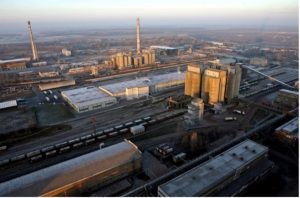- Client: DG REFORM
- Implementation period: October, 2020 - June, 2021 (Completed)
- Geographic coverage: Lithuania
- Theme: Climate Change
- Topic: Climate Change Policy and Strategy
- Experts: Koen Rademaekers, Vineta Goba, Matthew Smith, Tycho Smit, Ondřej Černý, Csinszka Bene
How to decarbonise Lithuanian industries and minimize related socio-economic risks in its most vulnerable regions?
The project focuses on the transition to a climate neutral economy in Lithuania, and alleviation of socio-economic costs of this transition. The adoption of the EU Green Deal and the transition will put considerable pressure on the most GHG-intensive industries in Lithuania. The most GHG-intensive installations are concentrated in the 3 regions of Lithuania:
- Kaunas region (JSC Achema – a leading producer of nitrogen fertilizers and chemical products in the Baltic);
- Telšiai and Klaipėda regions (JSC ORLEN Lietuva – the only petroleum refining company in the Baltic States);
- Šiauliai region (JSC Akmenės cementas – the only company in Lithuania, which manufactures cement).
The three biggest GHG emitters in Lithuania (Achema, Orlen Lietuva and Akmenės cementas) are directly and indirectly responsible for more than 25 thousand jobs or 2 per cent of total employment in the whole country. Of these, more than 15 thousand direct and indirect jobs are located in the four most affected regions (Kaunas, Šiauliai, Telšiai and Klaipėda). Furthermore, employment in the three municipalities, where the biggest emitters are located (Mažeikiai, Jonava and Akmenė municipalities), almost exclusively depend on these installations (up to 46 per cent of total employment in the most affected municipalities). Thus, the possible negative social and economic effects of the transition could result in substantial losses in jobs, income and gross value added both regionally and locally.
In order to deal with consequences of transition in equitable and fair manner, the European Green Deal proposed a Just Transition Mechanism, including a Just Transition Fund. The Just Transition Mechanism will focus on those regions and sectors that are most affected by the transition given their dependence on fossil fuels, or greenhouse gas-intensive industrial processes. The support from the Just Transition Fund will be based on the territorial just transition plans and conditional on their approval. The main aim of JTF is to enable regions and people to address the social, economic and environmental impacts of the transition towards climate-neutral economy. For the period of 2021-2027, 273 million EUR of JTF funding are allocated for Lithuania.
The project was to support the Lithuanian government in the preparation of their Territorial Just Transition Plans (TJTP), by providing the evidence base for the plans. One plan should be developed for each region, detailing how the JTF funding should be spent. Our work entailed 3 main elements:
- A review and recommendation for governance and monitoring arrangements for the JTF in Lithuania
- Establishing the evidence base for the most-affected regions in Lithuania taking into account their characteristics and likely impact of the transition
- Providing evidence and recommendations for the TJTPs for each region, including detailing the most appropriate measures to support at the industrial facilities, the economic diversification actions to alleviate risks and assessments of the impact of these actions and their contribution to national targets.
Based on this evidence base and the proposed pathways provided by the project, Lithuanian Ministry of Economy and Innovation in cooperation with other national, regional and local stakeholders during 2nd half of 2021 will prepare Just Transition Plans for most affected regions, thus enabling respective regions to access support of Just Transition Fund.
The key findings of the project are:
- The decarbonisation of the three biggest GHG emitters’ operations is the best way to ensure a just transition in Lithuania.
- The challenge for the industries is that most innovative carbon abatement measures are typically expensive and not commercially proven – there are significant risks, positive and negative that make companies hesitant to act. The JTF funding can partially bridge the gap in costs, but contributions from the companies and other sources is likely to be needed.
- Options for each industrial facility were considered and evaluated in detail, taking account of the cost of abatement, the emissions saving potential, the likely impact on their ETS costs and other factors. In this way a pathway was proposed for JTF funding at each facility.
- Transition and transformation of the companies also depends on both internal and external factors, such as the ability of companies to provide their own finance, to withstand competitive pressure, and also on the parameters of competition on EU level. Those parameters will be influenced, amongst other things, by modalities and timing of deployment of carbon border adjustment mechanism.
- In parallel, a significant part of JTF/JTM support in Lithuania should also be oriented towards increasing the resilience of the most affected territories, aiming to create possibilities to offset possible job losses in the long run and reducing the dependency of these territories on one big enterprise, by attracting new investors and facilitating modernisation and transformation of local SMEs.
The project was led by Trinomics, in collaboration with ESTEP and ran from mid- October 2020 to July 2021.



